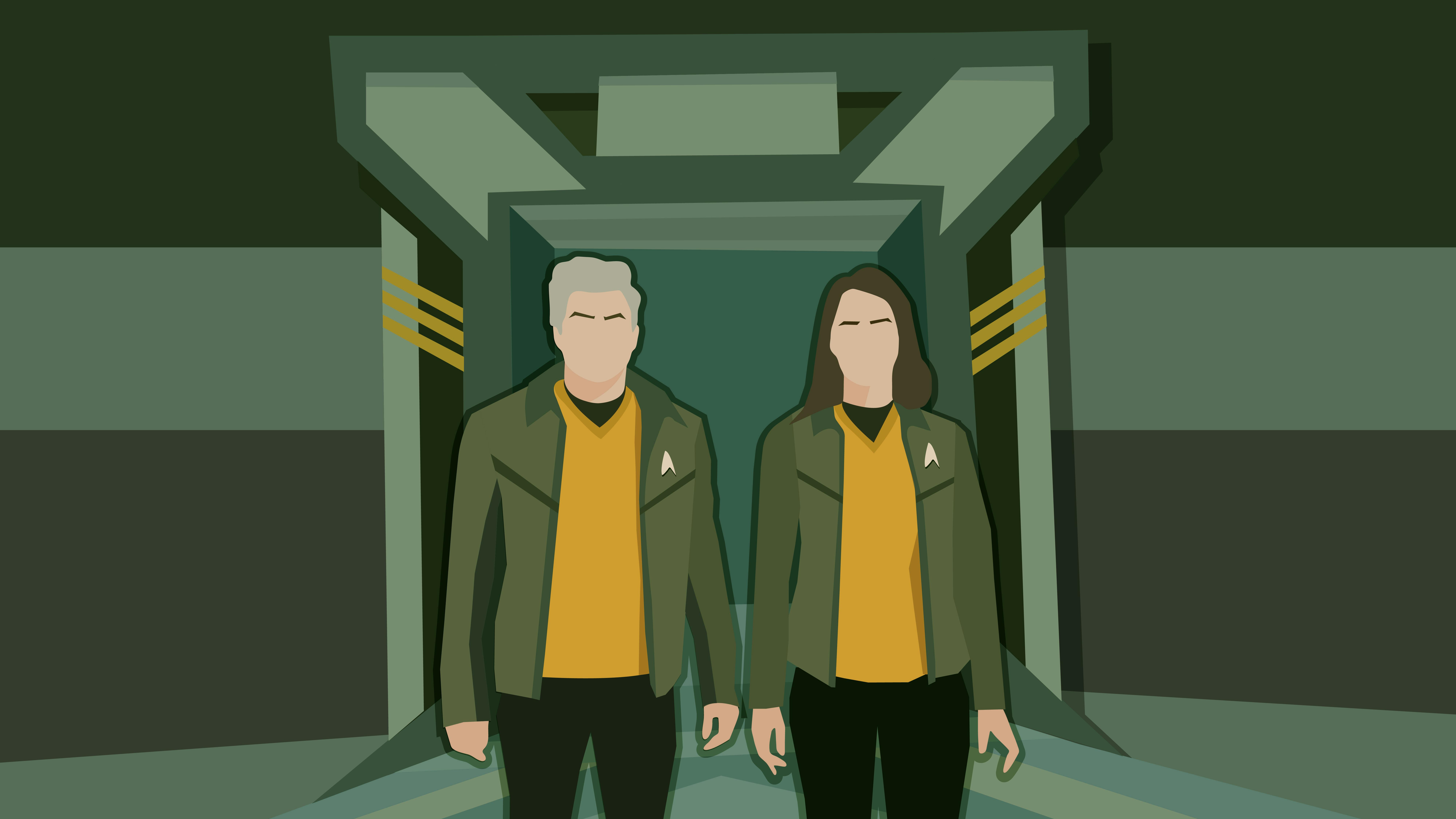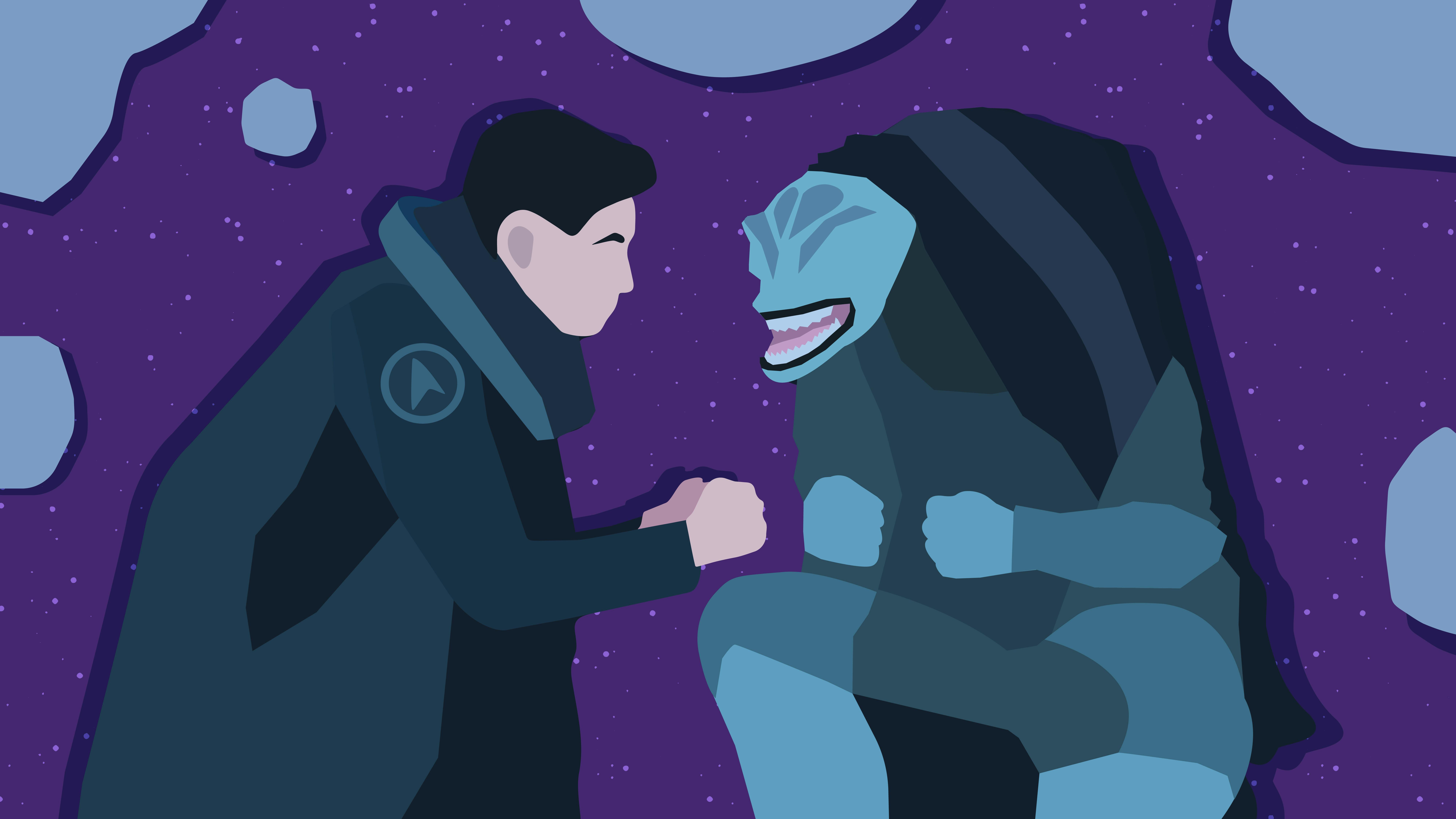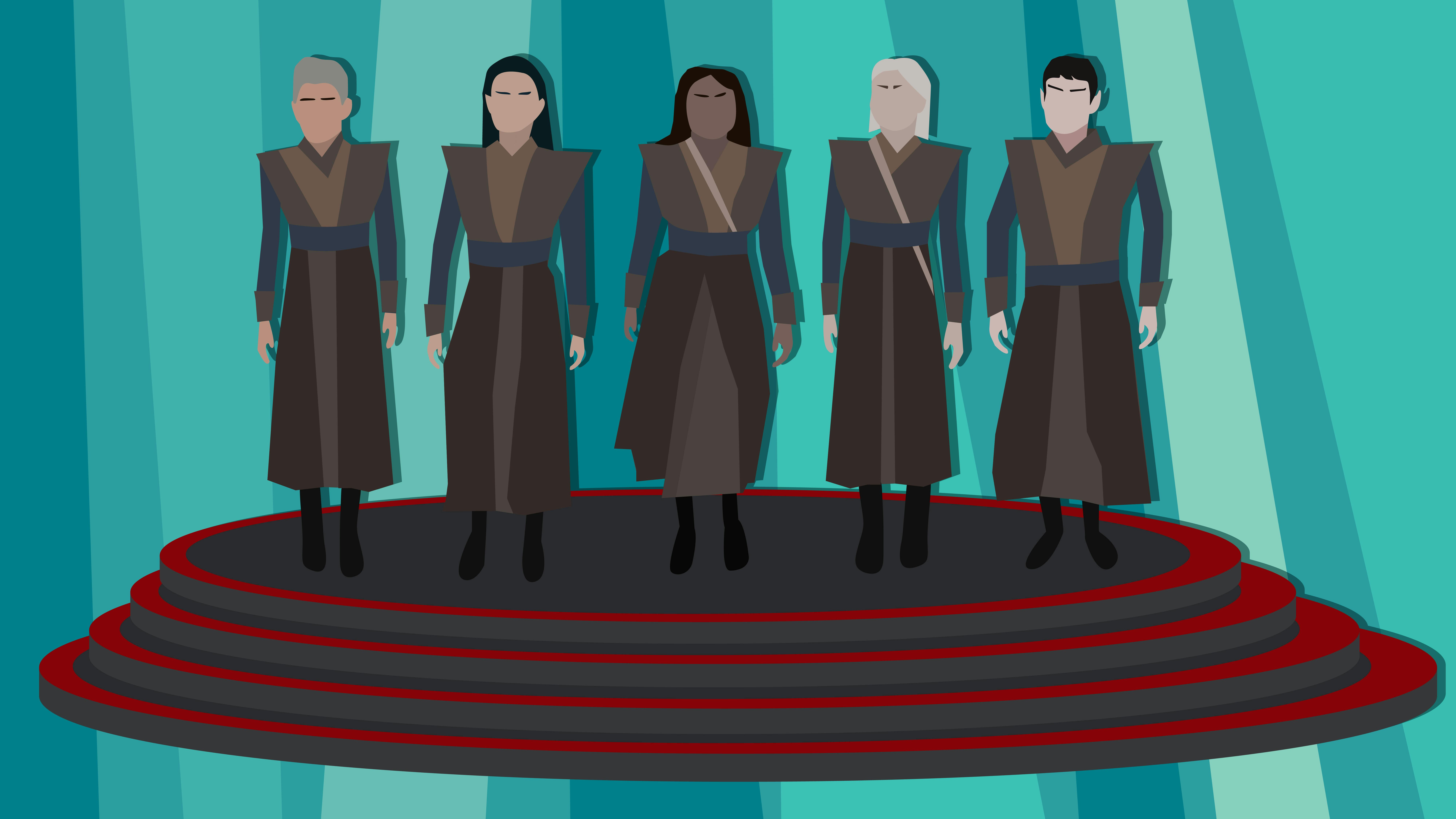Published Jun 13, 2024
Rayner and Book's Shared Path to a Life Beyond the Burn
The demoted captain and former courier were unequivocally linked by their 32nd Century perspectives and a variety of post-Burn experiences.
SPOILER WARNING: This article contains story details and plot points for the fifth season of Star Trek: Discovery.
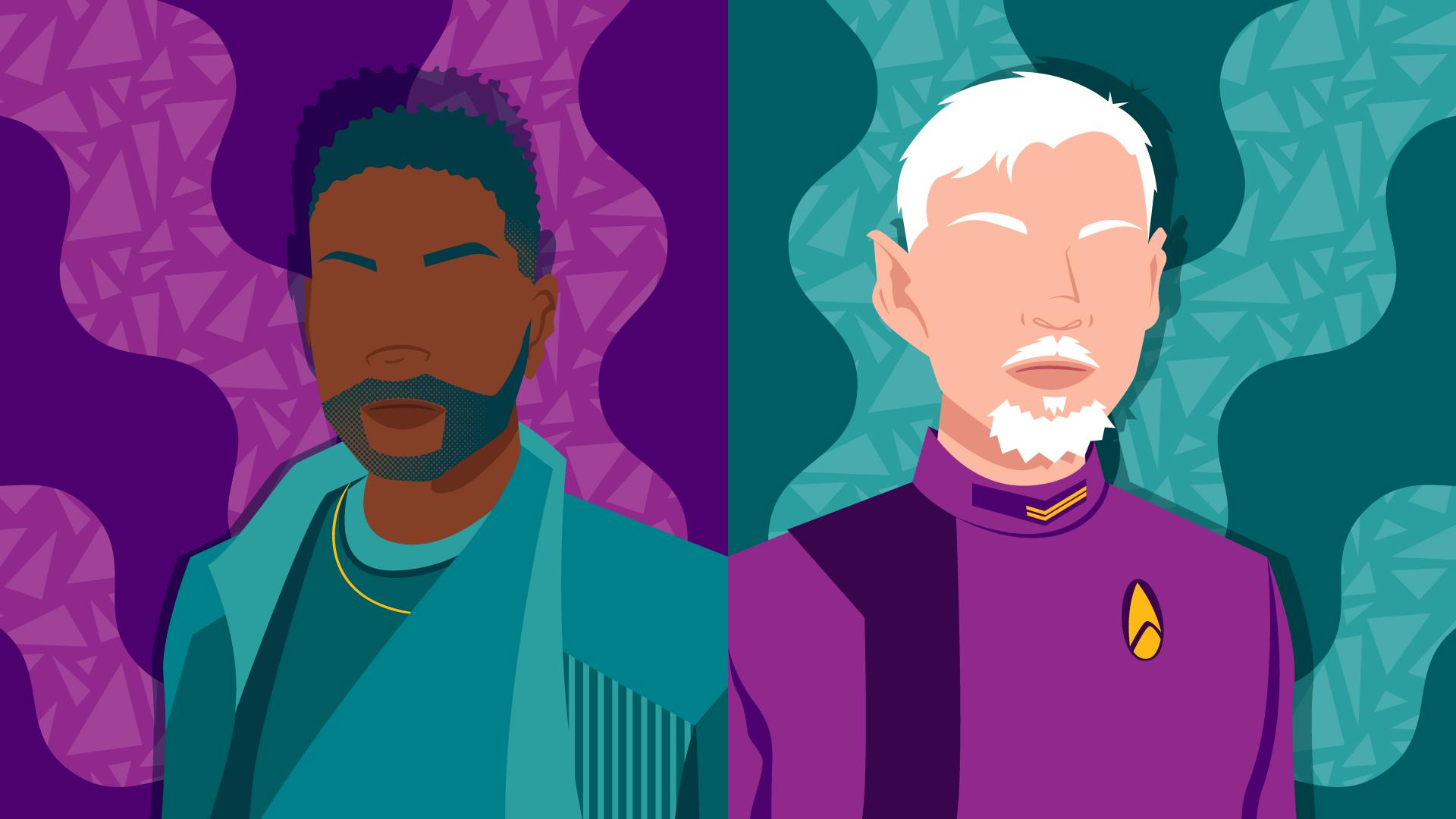
StarTrek.com
When Commander Rayner and Cleveland "Book" Booker joined forces to hold off Breen soldiers in 's "," the hunter-like instincts displayed by the Kellerun officer earned him praise from his Kwejian companion.
On the surface, one might not expect a demoted captain and a former courier to have much in common, but the two men's lives were unequivocally linked by their 32nd Century perspectives and a variety of post-Burn experiences. As we explore their paths' most significant parallels, we hope to develop an even better picture of the shared respect which enabled their team up at the Eternal Gallery and Archive to be so effective.
Histories with Oppressive Regimes

"Erigah"
StarTrek.com
Diminished by the Burn, the Federation withdrew from interstellar affairs to such an extent that it left behind a perilous power vacuum. Powers like the and Emerald Chain pounced on the opportunity to expand their influence throughout the region. During a tactical briefing at Federation Headquarters in "," Commander Rayner demonstrated a harsh, unwavering disdain for the Breen. Rayner's militant reaction seemed out of character for a Starfleet officer, but Captain Michael Burnham soon learned that the Imperium had occupied the Kellerun commander's homeworld and used it as a forward base for a number of years. Under the rule of Primarch Tahal, Kellerun saw its environment ravaged and its population decimated. Decades later, the trauma still weighed so heavily on Rayner that he believed the Breen could not be negotiated with.
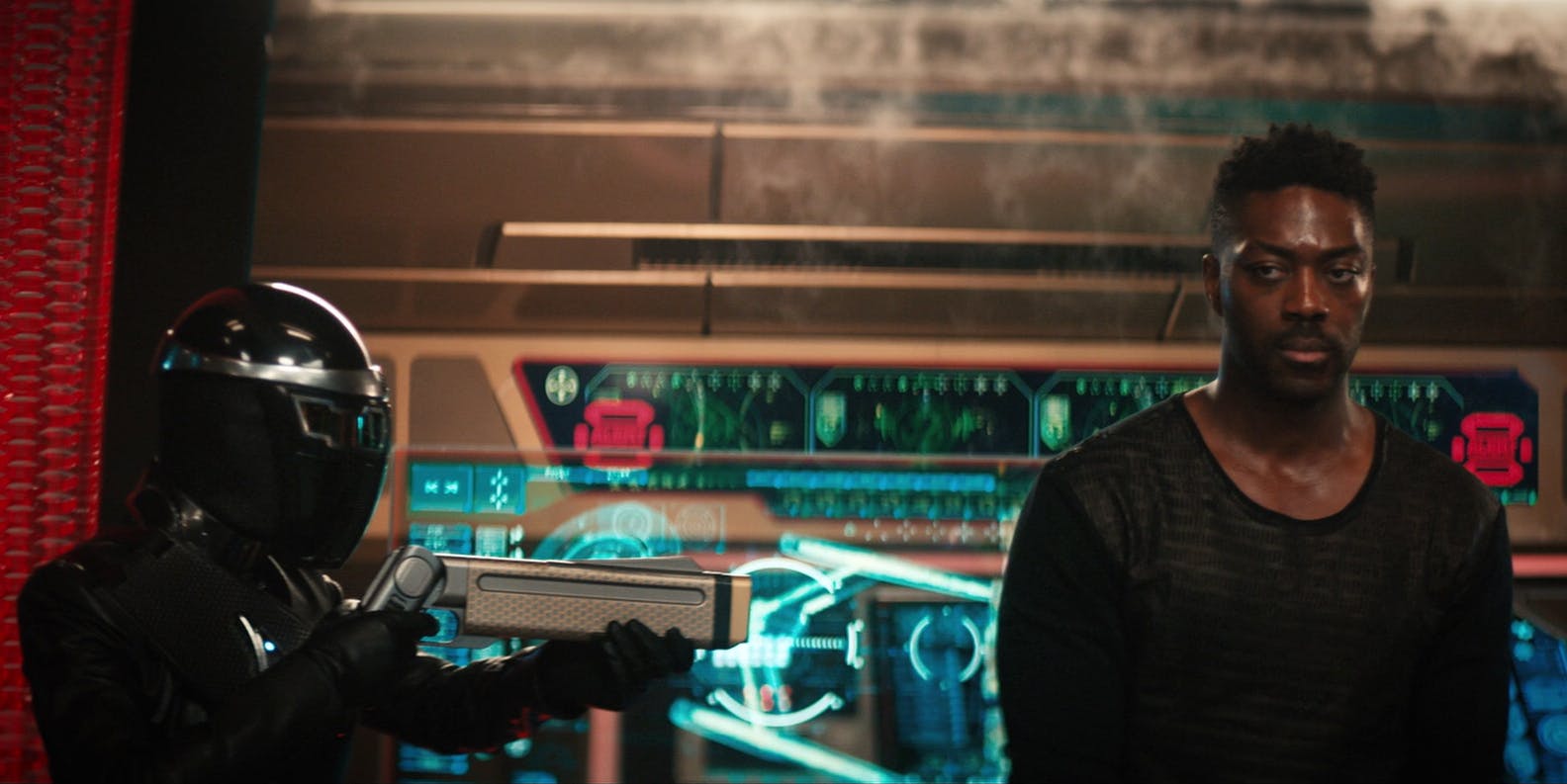
"That Hope Is You, Part 2"
StarTrek.com
The Emerald Chain took a more subversive approach with Book's home planet, Kwejian. As outlined in "," a lost harvest subjected millions of Kwejian to starvation, so the Chain stepped forward with a solution that came at a steep price. Osyraa, the syndicate's leader, required Kwejian to provide her with a supply of tranceworms. Even after the Kwejian harvest was saved, Osyraa continued to hold its citizens hostage with the threat of a renewed food shortage. When Book's brother, father, and grandfather began hunting the beloved species for the Chain, a rift erupted between them and contributed to Book's decision to leave his planet behind. Book's anger over his family's actions persisted for 15 years and informed his opinion of the Emerald Chain. The precise circumstances of Rayner and Book's ordeals differed, but witnessing brutal regimes manipulate their homes left indelible impressions upon them both.
Burdened by Independence
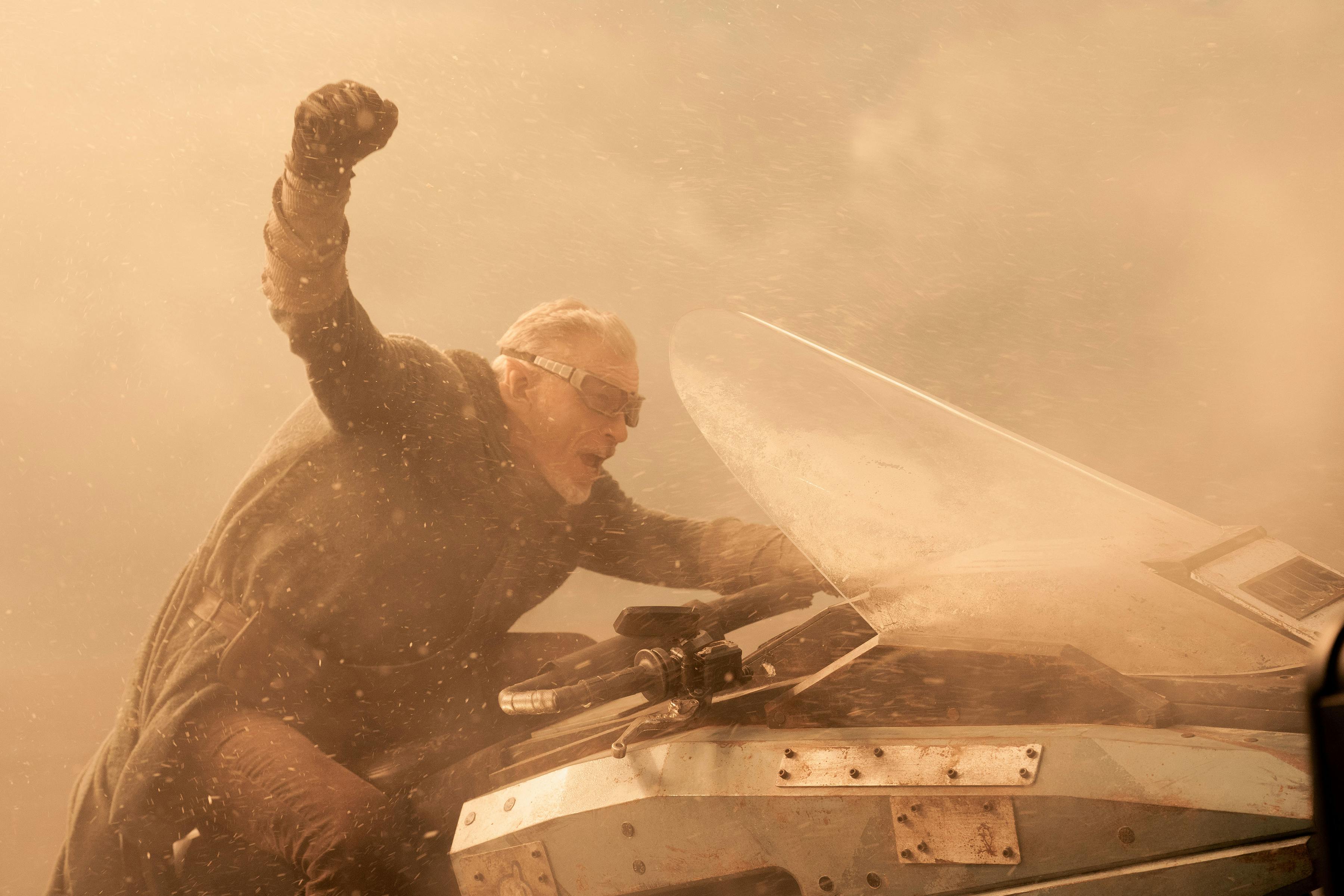
"Red Directive"
StarTrek.com
The dilithium scarcity that resulted from the Burn left the galaxy fragmented and its population isolated, as warp travel suddenly became more of a luxury than a typical means of commuting across the stars. This uncertainty stoked an independent mindset that prevailed throughout the 32nd Century, even influencing Starfleet Academy's rejuvenated recruitment effort in the 3190s. With a starship still limited by its Burn-era technology and a need to rely on his own resourcefulness, Captain Rayner exhibited a tendency to take off on his own and commit to risky strategies when he first worked alongside Burnham in "." Although Rayner's initiative did have its benefits, such as the unexpected assistance he provided during Discovery's visit to a Promellian necropolis on Lyrek, his focus on self-reliant attitude and an unwillingness to change led him to lose his captaincy in "."
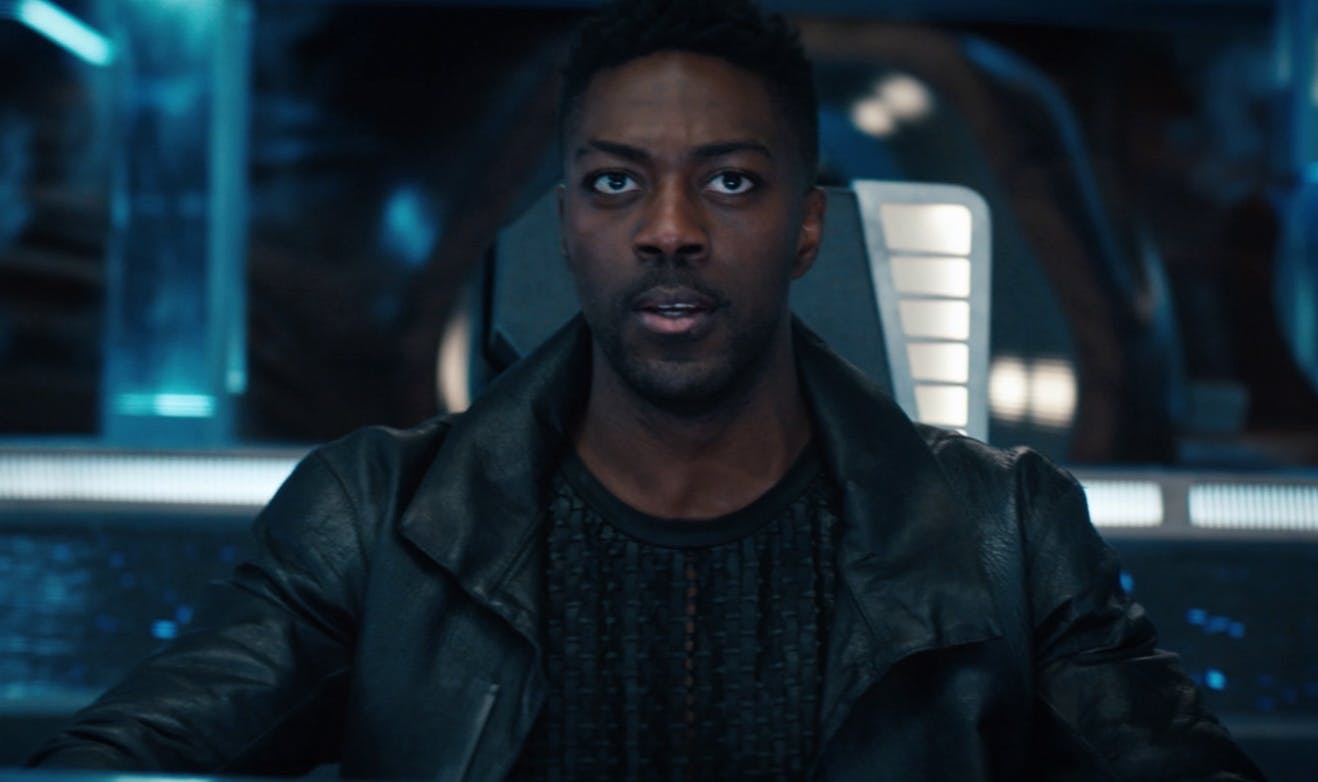
"That Hope Is You, Part 1"
StarTrek.com
Book's own self-sufficiency manifested in a multitude of ways, from his career as a courier to the suspicion he greeted Burnham with in "That Hope Is You, Part 1." Despite Burnham's honesty and openness, Book chose to sacrifice their potential friendship by stealing her gear in order to trade it for dilithium. The Kwejian intended to dedicate that dilithium to a good cause, of course, as he hoped to transport an endangered tranceworm to a sanctuary. Book and Rayner's lives were also bridged by this trait, as Book's respect for life and Rayner's devotion to the Federation's ideals indicated that their gruff exteriors concealed the true depth of their compassion, empathy, and understanding.
A Hesitance to Connect

"Jinaal"
StarTrek.com
Upon assuming his post as Discovery's first officer in "," Rayner resisted Captain Burnham's request that he conduct one-on-ones with the crew and connect with each of them in person. He relented, but set up incredibly brief meetings and capped his subordinates' . These brief, superficial engagements frustrated the typically cordial Lieutenant Sylvia Tilly into an uncharacteristically disagreeable outburst. Though Rayner credited his boundaries to a desire to separate the personal from the professional, he later claimed that Burnham never had to learn the lessons that he did during the Burn. In "," the Kellerun insisted that creating a collaborative atmosphere and listening to everyone's opinion would have guided him and his crew to their deaths, but Burnham stressed that the Burn was over.
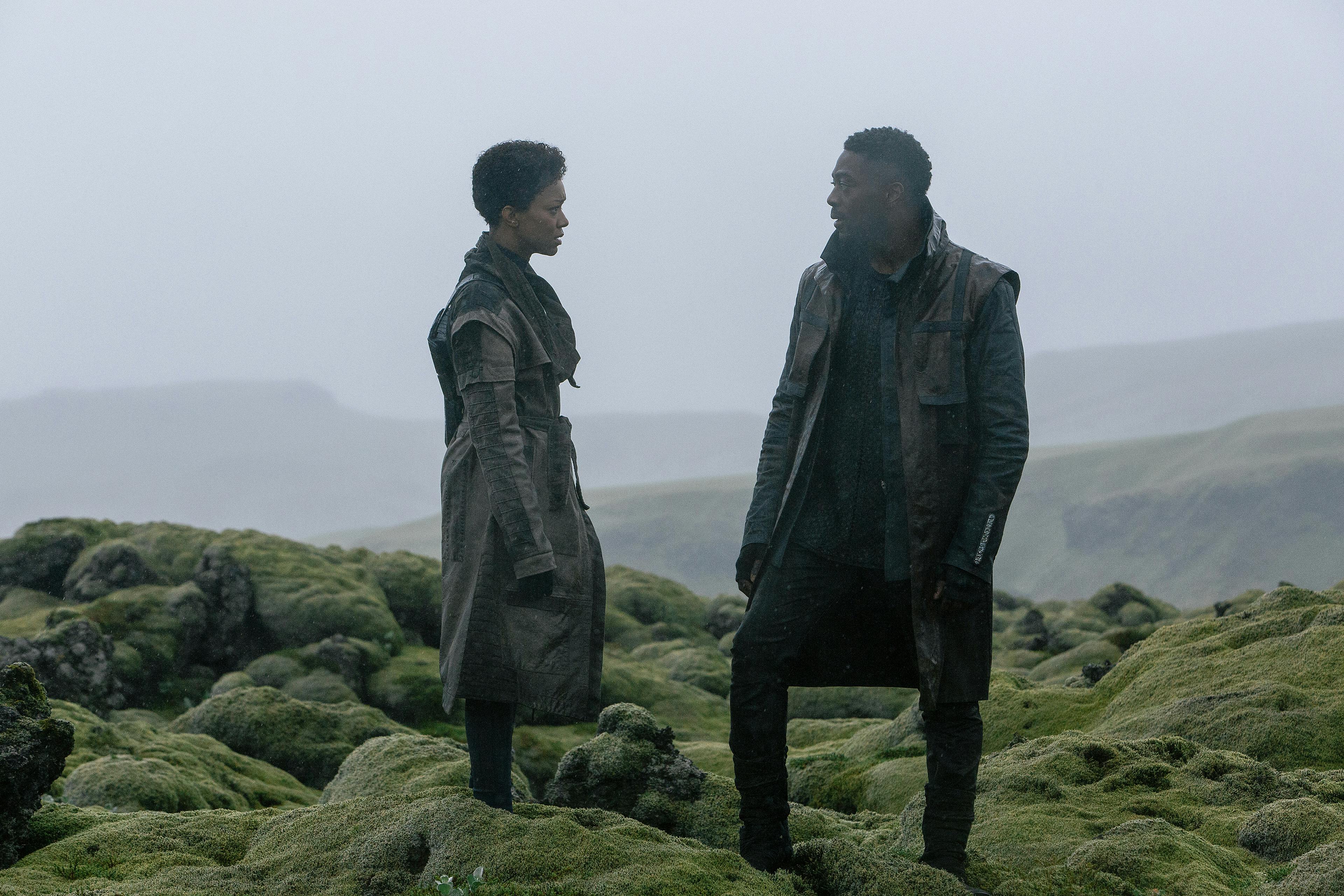
"That Hope Is You, Part 1"
StarTrek.com
Just as Rayner safeguarded himself by maintaining distance from those under his command, Book shut down Burnham's attempts to introduce herself in the wake of their run-in on Hima. In fact, he initially refused her the courtesy of simply letting her tell him her name in "That Hope Is You, Part 1." Declining such a connection was an act of self-preservation, as he suspected that the circumstances surrounding her arrival through a wormhole would attract trouble that he preferred not to deal with. Even after the year he spent working beside Burnham during her time as a courier, Book did not immediately accept her offer to accompany Discovery to the Alpha Quadrant in "." Book imposed the same barriers upon his own relationships that Rayner attributed to his role as a Starfleet officer.
Coping with Unfathomable Loss

"Under the Twin Moons"
StarTrek.com
The invasion of Kellerun was not just a political defeat for Rayner's people — it struck him on the personal level, as well. The commander's kinfolk rose against the Breen at the Twin Gates, and Primarch Tahal executed them through exposure to a viper's slow-acting venom. Rayner was the only member of his family to survive, as his ferocious style of fighting prompted Tahal to spare his life. This unimaginable tragedy haunted Rayner's psyche for decades to come and contributed to his aforementioned distaste for any diplomatic overtures made toward the Breen. Such long-lasting grief made his recent demotion pale in comparison. Nevertheless, when Primarch Ruhn threatened to start a war should the Federation not hand L'ak over to him in "," Rayner harnessed his familiarity with Ruhn's rival as part of a daring bluff to avoid a conflict.
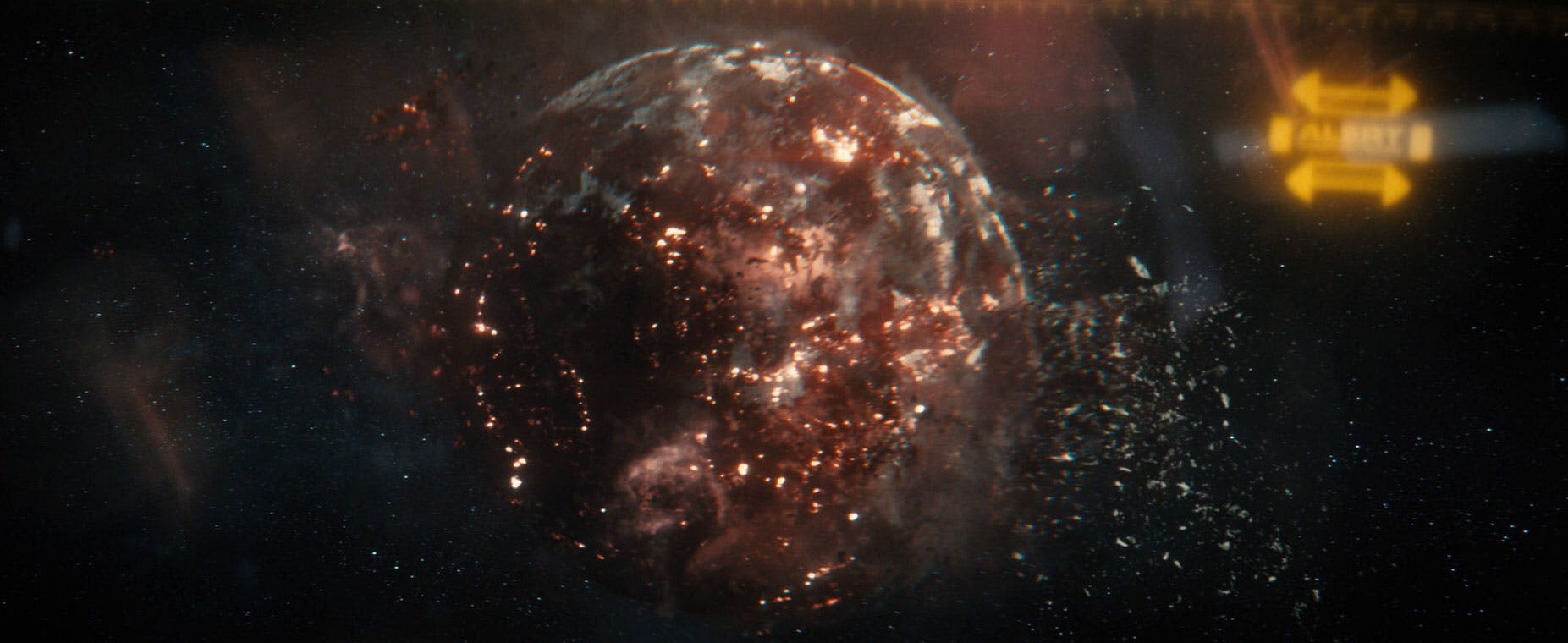
"Kobayashi Maru"
StarTrek.com
Book's separation from his homeworld started on a much smaller scale, as the rift that pushed him away from his family convinced him to leave Kwejian. Book did return in "," confronting the Emerald Chain and reconciling with his brother, Kyheem. Sadly, this revitalized bond proved to be fleeting, as Species Ten-C's Dark Matter Anomaly destroyed Kwejian the following year. As shown in "Kobayashi Maru," every person on the planet, including Kyheem and Book's nephew, were killed. While we observed Rayner in the later stages of his sorrow, Book's anguish had only just begun. The disaster negatively affected his relationship with Michael, and he channeled his loss into a reckless plot devised by the equally distraught Ruon Tarka.
Inspired by Michael Burnham
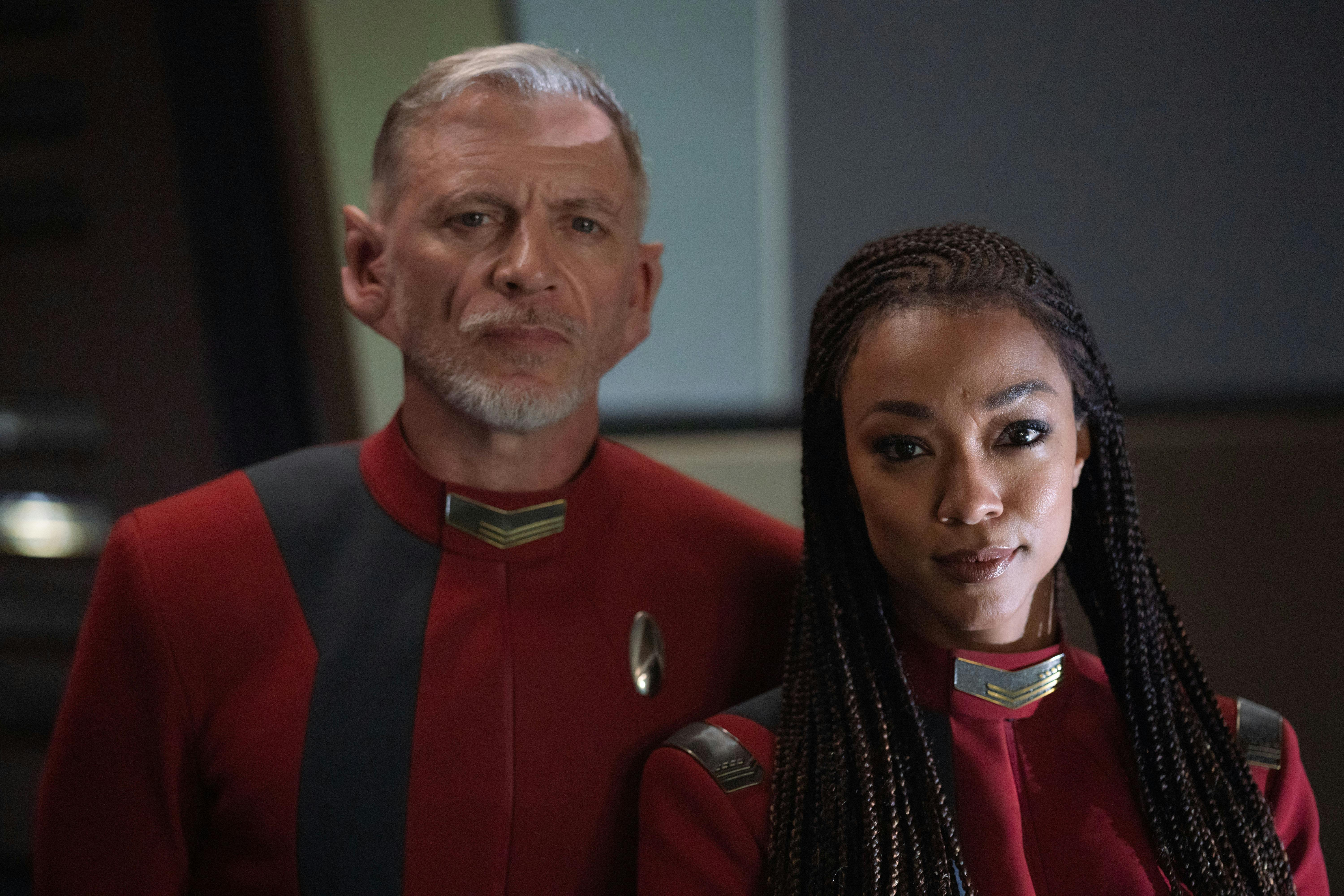
"Face the Strange"
StarTrek.com
Though they were not in a rush to embrace it, a capacity for growth and maturity was perhaps the most important parallel that existed between Rayner and Book. Michael Burnham served as a key motivator which helped to spark each character's ongoing development, and interestingly enough, Burnham had been in both of their positions before. Like Rayner, she had endured the shame of being demoted — well, technically stripped of her rank and imprisoned — and forced to prove herself in countless trials before she earned back Starfleet's trust. And, as was the case with Book, she acted as a courier and beheld the galaxy's dire situation firsthand during the year she was separated from Discovery's crew.
Whether she saw a part of herself in Rayner and Book or was just exemplifying her well-known empathic nature, Burnham took a chance and bet that each of them held a capacity for improvement. She accomplished this in the best possible way — by listening to their concerns and living up to her own lofty expectations. From utilizing her connection with the crew to save Discovery from a time bug in "" to trusting him with the conn on numerous occasions, Burnham inspired Rayner to get to know her crew and restored his confidence in his command abilities. By "," Rayner displayed this growth by sitting in the captain's chair and forging friendships with his captain, Tilly, and other officers aboard Discovery.

"Face the Strange"
StarTrek.com
Burnham's influence on Book was even more pronounced, as he went from a lone courier to a person who had found love, family, and a home in a matter of a few short years. Nonetheless, there were some more subtle changes, as well. His original avoidance of getting to know new people was replaced by an effort to go out of his way to be there for Moll. Book no longer dodged those connections, instead seeking them out. And, because of these symmetrical developments, Rayner and Book were able to appreciate each other's skills when the Breen attacked in "." Quite fittingly, their teamwork ensured the safety of Michael Burnham — the very catalyst for their evolution — as she worked her way through a .

